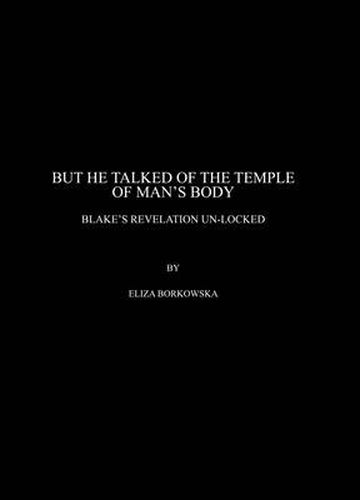Readings Newsletter
Become a Readings Member to make your shopping experience even easier.
Sign in or sign up for free!
You’re not far away from qualifying for FREE standard shipping within Australia
You’ve qualified for FREE standard shipping within Australia
The cart is loading…






Starting with Locke’s philosophy of language, which turns words into bricks and uses them to build a rigid system of science and morality, this book is a response to Blake’s un-Lockian thought through an analysis of his linguistic practices. It is an attempt to understand why Blake says what he says the way he does.While being a study of Blake’s poetics, the book is at the same time a poetic study that never attempts to translate poetry into prose. It reads like a narrative, telling of an effort to build, an attempt to destroy, and then rebuild again. Primarily aimed at Blake readers, it will also interest those interested in Enlightenment and Romanticism, as well as students of art, religion or philosophy. And, since Blake’s criticism of Locke is in fact Blake’s criticism of the main assumptions of modernity, the book should prove a stimulating experience to all those who do not mind looking at the reality from some critical distance.
$9.00 standard shipping within Australia
FREE standard shipping within Australia for orders over $100.00
Express & International shipping calculated at checkout
Starting with Locke’s philosophy of language, which turns words into bricks and uses them to build a rigid system of science and morality, this book is a response to Blake’s un-Lockian thought through an analysis of his linguistic practices. It is an attempt to understand why Blake says what he says the way he does.While being a study of Blake’s poetics, the book is at the same time a poetic study that never attempts to translate poetry into prose. It reads like a narrative, telling of an effort to build, an attempt to destroy, and then rebuild again. Primarily aimed at Blake readers, it will also interest those interested in Enlightenment and Romanticism, as well as students of art, religion or philosophy. And, since Blake’s criticism of Locke is in fact Blake’s criticism of the main assumptions of modernity, the book should prove a stimulating experience to all those who do not mind looking at the reality from some critical distance.